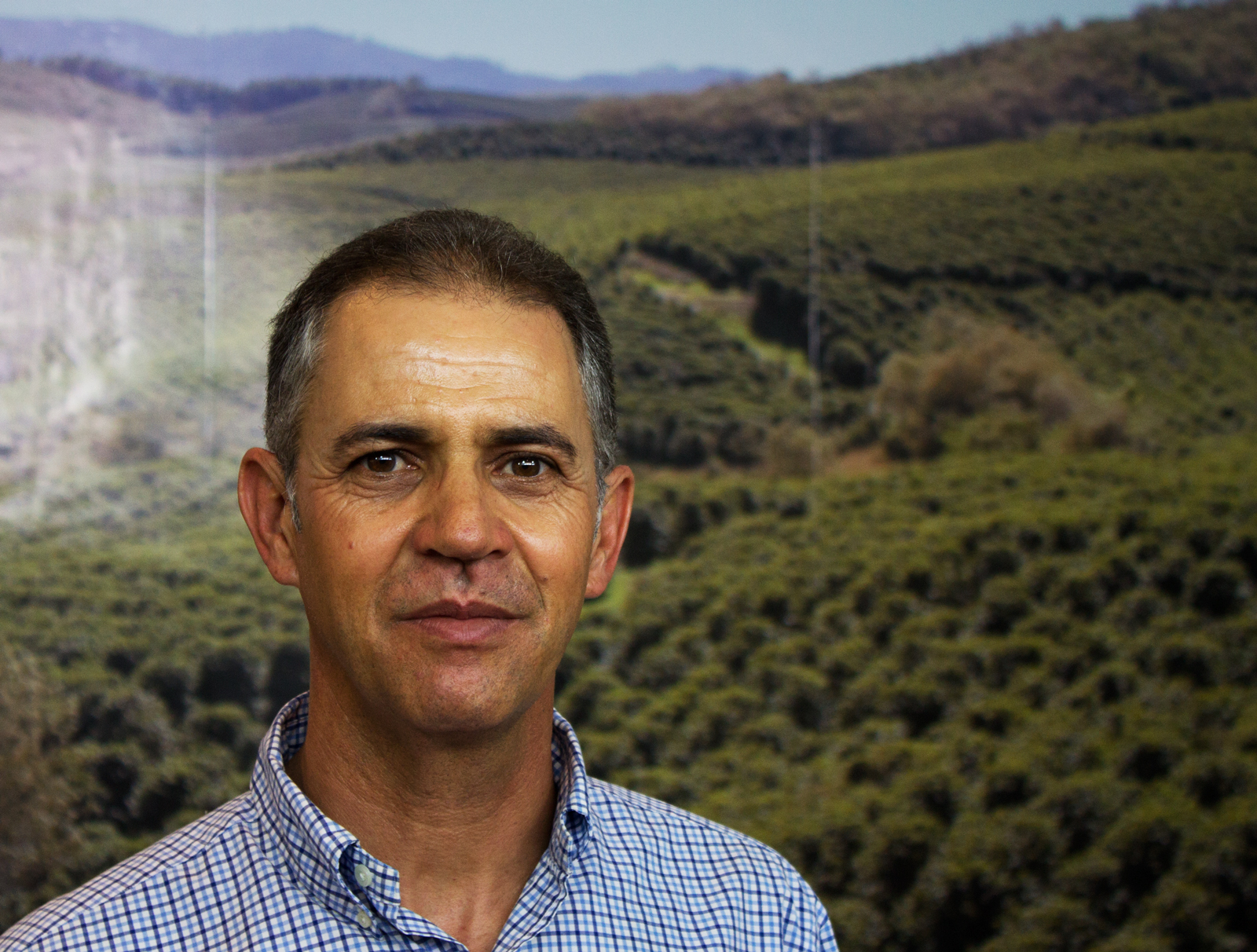The Cerrado Mineiro region is well known by the quality of the coffee beans grown in there. And that is where Fazenda Cruzeiro is located. Situated 930 meters above the sea level, this farm has perfect conditions to produce specialty coffees with quality and sustainability.
The region where Fazenda Cruzeiro is located benefits from up to 1800 to 2000mm/year of rainfall, which makes irrigation unnecessary. The rainy season always falls before May, which also guarantees perfect conditions for natural drying process.
Purchased in 2009 by Cláudio Ottoni, the farm started with 130 hectares planted under coffee. Today the coffee plantation has expanded to 200 hectares. All production is certified by Rainforest Alliance and Nespresso AAA.
Claudio Ottoni is the fifth generation of the family involved with coffee production. Since his graduation in Agronomy, he dedicates his time and labor over coffee production and always chase the best techniques to obtain the greatest quality of his coffee production.
The Ottoni family always seeks to use the most sustainable growing practices and stewardship of the land. Over 140 hectares of the farm is devoted to wildlife preservation. It is even possible to see wild animals through the farm.
Additionally, the Cruzeiro Farm now works with no water waste and has implemented agro ecological means of reducing and (in many cases) completely eliminating the use of herbicides. Some of these methods include planting plant species nearby the coffee trees that will attract and trap bugs and insects before they are able to infect the cherries. Another practice that worth to be listed is the maintenance of the weed between coffee rows in order to keep more moisture in the soil even in the dry periods.
Furthermore, the discarded coffee pulp produced during the de-pulping of coffee cherries is recycled as compost and applied to the coffee plants. This serves to re-invigorate soil fertility and to help the coffee plant absorb more water and nutrients.
The biggest innovation that Cruzeiro has implemented with regards to quality is the use of silo dryers in the processing of their coffee. These silos are commonly used for seeds and other grains and help control and manage the drying process. Their use in drying coffee has produced excellent results in the cup due to the slower drying process under controlled temperature, which increases uniformity and prevents over-fermentation. Furthermore, by using eucalyptus from the farm to fuel the fire for the drying process, Cruzeiro is able to reduce energy consumption by 60%.
Even more importantly, perhaps, the silo drying process doesn’t ‘kill’ the bean, meaning that the bean can be replanted after being dried. This ensures a longer storage life and promotes profile stability over a longer period of time. As Cláudio Ottoni has stated, “It is important to keep the coffee beans alive for a sweeter and cleaner cup”.
The relationship between Claudio Ottoni and his employees is another interesting point. According to him, “the workers are not seen as part of the productive process, but as humans who are essential for the final quality of the coffee beans”. Fazenda Cruzeiro gives preference to employ locals, and its proud of its low rotation. The term fix “collaborator” are constantly professional and technically capacitated, and all security norms and labor laws are respected in order to guarantee their well-being.
Processing:
Concerned about quality and how to manage our plantation, we have begun to harvest mainly mechanized, respecting a minimum percentage of green beans, around 10 to 15%, reducing during the crop, having traceability from the three until the final process.
The coffee is deposited in asphalt patios with a 5 cm density, where it takes 5 days to reduce its moisture and goes directly to the drying silos, beginning its controlled drying process with a stove with indirect fire and air at a 40°C temperature. Inside the silos there are these turning threads which mix and remove the coffee layers from the bottom to the top allowing a consistent drying and a standardized coffee.
Each silo has the capacity to dry 500.000 liters of coffee which allows us to produce big scale lots maintaining a pattern on quality and traceability. Besides, it is a process that does not uses water, low energy and low wood consumption.
It is also practiced the non-collecting of coffees who felt on the ground from the three, giving a positive impact in all the farm processing.

